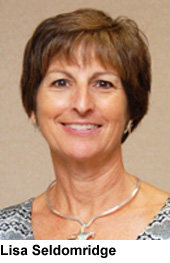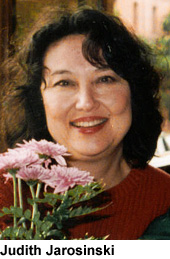Do you identify with these authors and their stories? (Republished from 2017.)
 Mentoring is vital for professional and personal growth. Mentors can appear in surprising places and in unexpected forms. In this piece, we reflect on the role of mentorship in our careers.
Mentoring is vital for professional and personal growth. Mentors can appear in surprising places and in unexpected forms. In this piece, we reflect on the role of mentorship in our careers.
Lisa’s story
My interest in mentorship arose from a lack of mentors during my early years in academia. I started out as a clinician—an adult health clinical nurse specialist—but accepted an academic position after relocating to a region where clinical specialists were not used. My transition to a faculty role was rocky as I tried to navigate this new world and learn how to fit in.
 I knew a great deal about my content areas and could craft a spell-binding presentation on any number of topics, but I knew very little about writing a syllabus, constructing a multiple-choice test, and providing feedback to students about their clinical performance and written work. I struggled with simple things as well, such as what students should call me. “Professor” and “Mrs.” sounded old, but letting them use my first name felt too familiar.
I knew a great deal about my content areas and could craft a spell-binding presentation on any number of topics, but I knew very little about writing a syllabus, constructing a multiple-choice test, and providing feedback to students about their clinical performance and written work. I struggled with simple things as well, such as what students should call me. “Professor” and “Mrs.” sounded old, but letting them use my first name felt too familiar.
The only available seasoned faculty member—the department head—was also my supervisor. When she offered me the assistant professor position, she expressed confidence in me and shared her hopes for what I would bring to the nursing program. With those words ringing in my ears, I felt both excited and uneasy about meeting her expectations. She was a very kind person with a wealth of knowledge, but I was reluctant to ask her for guidance for fear she would think less of me.
Except for a brief orientation, she did not reach out to me, either, so I was left to figure things out on my own. Fortunately, two other faculty members, both hired a year before me, became my support group. Since we carpooled, we had ample time and a private place to share challenges and discuss possible solutions. We read widely, attended conferences, and learned together how to perform our faculty roles.
When I left that small college and took a position at a university, I expected a smoother transition because I now had seven years of teaching experience. However, the university environment was markedly different from that of the college. Research and scholarship expectations were much higher, and I had a lot to learn about this new culture, including how to successfully navigate the tenure review process. There was no formal mentorship program, and finding one’s way in the system was considered a rite of passage.
Again, I turned to other new faculty members for peer mentorship. We supported one another through dissertation defenses as well as publication acceptances and rejections, and we mastered new teaching strategies and technologies together. We weathered the tenure and promotions process and came away thinking there had to be a better way to invite newcomers into the academic world. There was. As a result of our experience, a formal orientation and pre-tenure support process was established to connect newly hired, full-time faculty members with seasoned, tenured colleagues.
Through regular meetings with their pre-tenure committees, the new faculty members learned how to be successful in the department and the university. These committees provided guidance throughout the tenure review period on everything from refining classroom and clinical teaching to finding sources of funding for professional development. While not a perfect process, it connected experienced and novice faculty members early on and facilitated interaction over a period of several years.
Judy’s story
I don’t think I had a real mentor until late in my master’s program. One of my professors suggested I consider pursuing my PhD. I can remember my response: “I’m really not interested in doing any research.” She reminded me that research was part of the whole package but didn’t stop there. She talked about teaching and moving beyond the clinical arena. She visualized “careers,” not simply jobs or opportunities. She was a mentor, in the most generous way, and she recognized possibilities in me. I think she knew I would love research once I was immersed in it.
 I did enter the PhD program, and she continued to be my mentor all the way through my dissertation. I was one of the few who chose qualitative research methodology. It wasn’t her area of expertise, but she was as excited as I was and resolute in her support. Her feedback, always in the guise of humorous commentary, kept me on track. As I was preparing to defend my dissertation, she asked about my presentation plan. I said something like, “I’m just going to talk about my research.” She allowed that might be a plan but offered, “The culture in the school is PowerPoints,” and I acted upon her not-so-subtle suggestion. She retired from teaching not long afterward but continued as my adviser and friend. That’s when my second mentor emerged.
I did enter the PhD program, and she continued to be my mentor all the way through my dissertation. I was one of the few who chose qualitative research methodology. It wasn’t her area of expertise, but she was as excited as I was and resolute in her support. Her feedback, always in the guise of humorous commentary, kept me on track. As I was preparing to defend my dissertation, she asked about my presentation plan. I said something like, “I’m just going to talk about my research.” She allowed that might be a plan but offered, “The culture in the school is PowerPoints,” and I acted upon her not-so-subtle suggestion. She retired from teaching not long afterward but continued as my adviser and friend. That’s when my second mentor emerged.
This mentor had a substantial research trajectory working with homeless youth in San Francisco, my hometown. We bonded immediately—which, for me, is a crucial aspect of mentorship. Although her research interests, discipline, and even perspectives are very different from mine, we could talk about any subject. Her openness and approachability helped create a good mentoring experience.
Reflecting on our mentoring experiences
We both experienced lack of mentorship early in our faculty careers and, as a result, realize how important this support can be in helping clinicians transition into academic roles. Our experiences led to the establishment in 2011 of the Eastern Shore Faculty Academy and Mentorship Initiative, a non-credit educational program that helps prepare expert clinicians for new roles as part-time clinical faculty. Using a combination of strategies, including online content modules, periodic face-to-face meetings, and simulation experiences, the academy provides a how-to-teach foundation that helps ease the transition from practice to education.
It was a good start, but we soon realized it wasn’t enough. As academy graduates take part-time teaching appointments and work through the challenges of being a new teacher, support is needed for at least a year. Our “aha” moment led to the development of a formal, yearlong, one-to-one mentorship program that pairs novice faculty members with experienced ones. The program is in its infancy, but initial feedback is very favorable.
As a result of our experiences, we have learned a great deal about mentoring in academia and offer a few life lessons: 1) A safe, supportive environment is essential in promoting mentoring relationships. 2) It is more important that mentors have certain characteristics—such as approachability, openness, and ability to see potential, give constructive feedback, and ask tough questions—than to be a perfect match with mentees when it comes to content expertise. 3) There is as much to gain in being a mentor as in being mentored. 4) Becoming an outstanding teacher is a lifelong commitment, which mentorship helps facilitate.
Lisa A. Seldomridge, PhD, RN, is professor and director, Graduate and Second Degree Nursing Programs, Salisbury University, Department of Nursing, Salisbury, Maryland, USA. Judith M. Jarosinski, PhD, RN, CNE, is associate professor, Department of Nursing, Salisbury University.
Editor’s note: Lisa Seldomridge and Judith Jarosinski presented “A Structured Mentorship Program to Support Expert Clinicians in New Roles as Clinical Faculty” on Sunday, 30 July 2017, at the 28th International Nursing Research Congress in Dublin, Ireland. See the Virginia Henderson Global Nursing e-Repository for additional information. This article has been reposted because of technical problems with the RNL website when the article was first published on 29 June 2017.
Other articles in this series